Top 5 Strategies to Enhance Well-being at Your Vet Clinic
In veterinary practice, we are trained to master exceptional technical skills in radiology, dentistry, behaviour, reproduction, and more. We stack these competencies like a towering structure, reaching ever higher. But what happens when the foundations start to crumble? Who teaches us to effectively manage pressure, communicate assertively, and set boundaries without burning out?
In this challenging profession, being compassionate can lead to emotional exhaustion. That's why caring for ourselves is crucial to continue caring for others. Here are 5 tips to enhance well-being in your veterinary practice and safeguard our capacity to care.
Set Boundaries with Clients
Veterinary team members are firmly committed to providing pets with the best care possible and often struggle to say no. However, just like any healthcare provider, there are times when it becomes necessary to set clear boundaries. Educating clients is our responsibility, and we must put our framework in place to provide the best possible care. Let’s stop relying on people’s common sense or manners. Get inspired by physicians and dentists; they got this pretty clear.
Instead of getting stressed by unreasonable requests, communicating effectively is essential. For example, kindly explain, "I would love to see Toby today, but please note that emergency fees will apply for appointments on the same day requested after 3 p.m." This approach helps you maintain control while ensuring clients understand and respect the practice's policies. As a bonus, you'll be able to make it home for dinner! Ultimately, this fosters a harmonious and understanding relationship with pet owners, making the practice a welcoming and supportive environment.
Practice Assertiveness
Assertiveness involves clearly and respectfully expressing one's needs without disregarding the needs of others. While it may seem straightforward, for many veterinarians (including myself), saying "no" can be challenging, often due to our natural empathy.
When your colleague requests you to cover an extra shift, pause to consider before agreeing. Evaluate how it will impact your week. Remember, saying "yes" to others often means saying "no" to yourself! A helpful approach is to take a moment to reflect: “Let me think about it, and I’ll get back to you tomorrow.” It will allow you to make an informed decision rather than agreeing on the spur of the moment and realizing the next day that it falls at the same time as your niece's dance show. You might say, "I'm happy to help you out, but I'll need you to fill in the day after tomorrow to balance my schedule."
I could have avoided many uncomfortable situations if I had followed these simple precautions. If you are a people pleaser like me, I encourage you to draw inspiration from horses or the fearless teenagers around you who aren't afraid to speak their minds, which in no way diminishes your love for them!
Provide a Dignified End-of-Life Experience
Dealing with euthanasia is a delicate but necessary aspect of veterinary care. It can be emotionally taxing for professionals to place a deceased animal in a plastic bag, as it goes against our compassionate nature.
That's why I developed Euthabag, a thoughtful solution for caring for a beloved companion after their passing. Providing this choice to your clients lets you stay true to your principles while offering solace to grieving families. It's a small gesture that can turn a painful situation into a moment of tranquillity and reverence. They can take comfort in knowing they've gone above and beyond to uphold the dignity of their cherished companion. Offering them to write a note to their companion can also be very soothing.
Cultivate Compassion Satisfaction
Empathy is at the heart of our profession. Every day, we care for our patients with attention that often goes unnoticed: hugs, warmed blankets, kind words… Our kindness, which clients don’t always see, can genuinely shine during euthanasia—a moment when families are particularly vulnerable.
Share your experiences with them. Talk about the loss of your own pets to help normalize their pain and build trust. Take the time to explain, using simple terms, how the final appointment will unfold. If you sometimes feel underprepared or inadequately trained for these situations, check out Practical training and conferences on companion animal euthanasia, a free RACE-approved platform to enhance our end-of-life care toolbox.
Even though there is still no mandatory training on these subjects, you can proactively improve your knowledge and capabilities. Learning about these delicate topics can help you feel better and less like an imposter—a lifelong battle!
Celebrate Small Wins
Working in a veterinary clinic is demanding, and it’s easy to forget to celebrate our successes. Yet, these small moments of recognition can make a big difference in team morale.
I was fortunate enough to work in a clinic that always had beer and juice in the fridge, alongside vaccinations and stool samples. Every Friday at 5 p.m., our team would come together for a drink. This weekly tradition was essential for us to celebrate our successes and let off steam by sharing our accomplishments and airing out any challenges.
This was a good way to strengthen team cohesion and offer a well-deserved break. Another effective method is the "Oops-Yuck-Wow," a quick 5-minute daily exchange:
Oops: A situation where there’s room for improvement.
Yuck: A situation that made you feel uncomfortable.
Wow: An accomplishment you’re proud of.
These moments of sharing allow the team to support each other and appreciate their daily efforts.
Well-being in veterinary clinics doesn’t rely solely on technical skills but also on the ability to take care of ourselves and each other. By applying these simple tips, you'll create a more balanced and healthy work environment: setting boundaries, practicing assertiveness, handling end-of-life with dignity, experiencing compassion and satisfaction, and celebrating achievements.
If you have tips that work for you, please share them at celine@euthabag.ca. Let’s take care of ourselves to better care for others.



